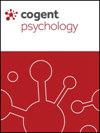挑战人们对一项任务的基本假设的效果:引入不确定性以减少过度精确
IF 1.6
Q2 PSYCHOLOGY, MULTIDISCIPLINARY
引用次数: 0
摘要
本文章由计算机程序翻译,如有差异,请以英文原文为准。
The effect of challenging people’s fundamental assumptions about a task: Introducing uncertainty for reducing overprecision
Abstract Most of us understand that our rationality is bounded by our cognitive limitations, knowledge, set of beliefs, etc. Generally, however, people are not sufficiently aware of their own bounded rationality and demonstrate overprecision vis-à-vis their decisions. In the current research we evaluate a new method to reduce the overprecision and improve the understanding of bounded rationality: In many cases people underestimate the extent of the bounds of their rationality, and, as a result, demonstrate overprecision in making their decisions. The evaluated method is challenging a person’s fundamental assumptions about a task through introducing uncertainty. Our study’s 120 participants were asked to predict the actions of a virtual player in a series of rounds of SET®, a popular card game. Challenging the fundamental assumption was done by changing the virtual player’s choice rules after 60 rounds. We juxtaposed this with a second method—explaining, giving information about bounded rationality at the beginning of the task and after rounds 10 and 62. Four experimental groups played the game in a 2 by 2 design, with the conditions Change (yes or no) and Explanations (yes or no). The results demonstrate that both methods, Explanation and Change, increased the post-knowledge of results times. We show that the new method to improve the understanding of bounded rationality, challenging the fundamental assumptions about a task through introducing uncertainty, is effective, and should be evaluated further.
求助全文
通过发布文献求助,成功后即可免费获取论文全文。
去求助
来源期刊

Cogent Psychology
PSYCHOLOGY, MULTIDISCIPLINARY-
CiteScore
2.90
自引率
0.00%
发文量
75
审稿时长
12 weeks
期刊介绍:
One of the largest multidisciplinary open access journals serving the psychology community, Cogent Psychology provides a home for scientifically sound peer-reviewed research. Part of Taylor & Francis / Routledge, the journal provides authors with fast peer review and publication and, through open access publishing, endeavours to help authors share their knowledge with the world. Cogent Psychology particularly encourages interdisciplinary studies and also accepts replication studies and negative results. Cogent Psychology covers a broad range of topics and welcomes submissions in all areas of psychology, ranging from social psychology to neuroscience, and everything in between. Led by Editor-in-Chief Professor Peter Walla of Webster Private University, Austria, and supported by an expert editorial team from institutions across the globe, Cogent Psychology provides our authors with comprehensive and quality peer review. Rather than accepting manuscripts based on their level of importance or impact, editors assess manuscripts objectively, accepting valid, scientific research with sound rigorous methodology. Article-level metrics let the research speak for itself.
 求助内容:
求助内容: 应助结果提醒方式:
应助结果提醒方式:


